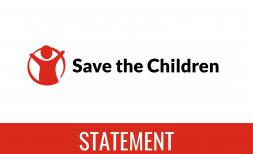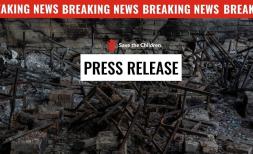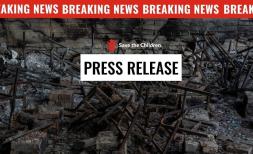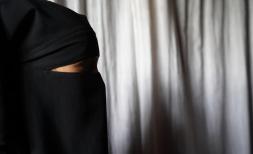COP26: Empty words and not enough action show children and youth are not being heard
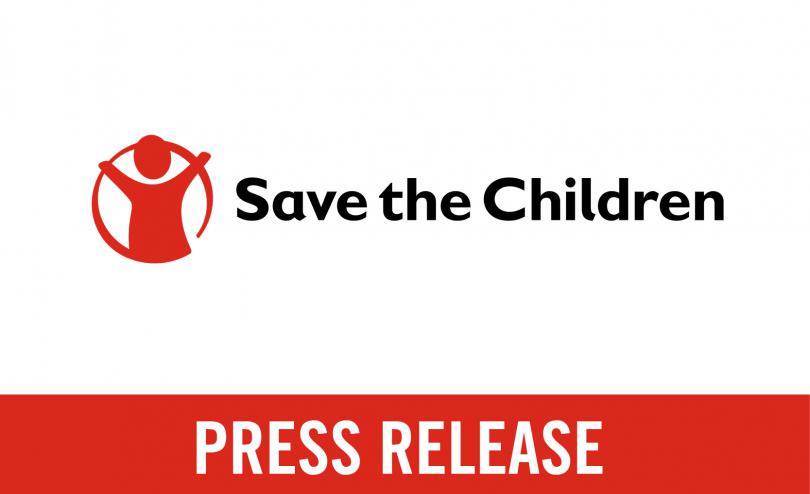
Outcomes from the COP26 climate summit demonstrate that leaders are not doing enough for children and youth beyond empty words, with what was hoped to be ‘the most inclusive COP ever’ the exact opposite, Save the Children said today, as talks in Glasgow come to a close.
Dorothy Kazombo Mwale, a youth climate activist from Malawi, said: “We can’t keep doing this again and again and not getting results. Give us a seat at the table so we can secure our future.”
Since COP26 negotiations started two weeks ago, more than 5 million babies have been born into a world where they will face seven times as many heatwaves, 2.6 more droughts, and three times as many crop failures as their grandparents, the child rights organisation said[i]. These extreme weather events disproportionately impact children in lower-income countries, as well as those already experiencing inequality and discrimination.
Save the Children’s Global Director of Child Poverty and Climate, Yolande Wright, said: “It’s encouraging to see a mention of children’s rights and intergenerational equity in the final text of COP26. But over the past two weeks, leaders have held the whole world – and children’s futures – in their hands. Children and young people have been calling on leaders to turn words into action, and this was their opportunity to see this through.”
According to Save the Children’s recent report with Vrije Universiteit Brussels, if warming is limited to 1.5 degrees C, the additional lifetime exposure of newborns to heatwaves will drop by 45%; by 39% for droughts; and by 28% for crop failures[ii]. Earlier this week, analysis warned that even with new pledges, including those made in Glasgow, global greenhouse gas emissions cuts are not ambitious enough to keep to the crucial 1.5C limit in sight[iii].
Yolande Wright said: “The importance of limiting global temperatures to 1.5C above pre-industrial levels is mentioned in the text, but a clear set of tangible commitments and the process to get there is missing in action.”
COP26 has failed to address the injustice of loss and damage, Save the Children added. High-income countries and historical emitters urgently need to support the development of new and additional funds to address rapidly escalating loss and damage, as well as the creation of a new climate finance mechanism for loss and damage by 2023.
Yolande Wright said: “As we write, the hunger crisis is worsening in many regions, including East Africa where another drought is bringing millions to the brink of starvation, and serious funding shortages mean we cannot take the action we know is needed to save lives and livelihoods. We aren’t discussing distant climate impacts that might happen – we are talking about crises happening right now, where children are affected first and worst and many are tragically already losing their lives.”
Other climate finance commitments have also fallen far too short, and failed to strike enough of a balance between mitigation and adaptation funding, according to Save the Children. For many countries, the human and financial costs of adapting are rising, and they cannot afford to wait any longer.
Yolande Wright said: “High-income countries that have economically benefitted from producing the most emissions must address their carbon debt by contributing their fair share of climate finance – particularly for the most vulnerable children. We need to see climate financing beyond the $100 billion commitment promised years ago and still not delivered – and we need to see a much stronger commitment to climate adaptation. This may sound challenging, but when we compare this to ongoing subsidies to the fossil fuel industry it is affordable. As a child rights organisation, we are outraged that adults are failing to act in the best interests of children – as we promised to do in the Convention on the Rights of the Child.”
All this comes against a backdrop of the most exclusive COP ever – despite assurances that it would be the most inclusive, Save the Children said.
Dorothy Kazombo Mwale, a youth climate activist from Malawi, said: “The fact that COP26 was not youth inclusive made it difficult for us to voice our thoughts and influence decisions that can actually bring about the outcome that we need.
Yolande Wright said: “Children and young people have told us themselves that their voices and experiences have not been heard in Glasgow. The children on the frontline of the climate crisis should have been systematically included in COP26 – this requires careful forethought and planning to be truly ‘child friendly'. Over the past two weeks and beyond, young people have been telling us: this is our future at stake. From calling on the UN to declare the climate crisis an emergency to taking countries to court for not doing enough to tackle this crisis – children know their rights and are refusing to back down. They want more than token opportunities to raise their voices – they want opportunities to influence and take action.
“We have seen tremendous leadership from young people in and around COP26. The real drive to secure our futures comes from children and young people. As the leaders of the future, children must be listened to.”
“Despite the overwhelming scientific, economic and moral case, our leaders have unambiguously failed children and bowed to vested interests who aren’t prepared to take the brave steps we know are necessary. Children around the world will pay the price of inaction with their lives. We must do better. This COP must be the last time the international community describes the problem without taking the necessary actions to properly address it.”
[i] Based on methodology used in Born into the Climate Crisis, and UN estimates that there are, on average, 140 million births per year
For further enquiries please contact:
- Emily Wight, Emily.Wight@savethechildren.org; +44 (0) 7557 015 031
- Our media out of hours (BST) contact is media@savethechildren.org.uk / +44(0)7831 650409

